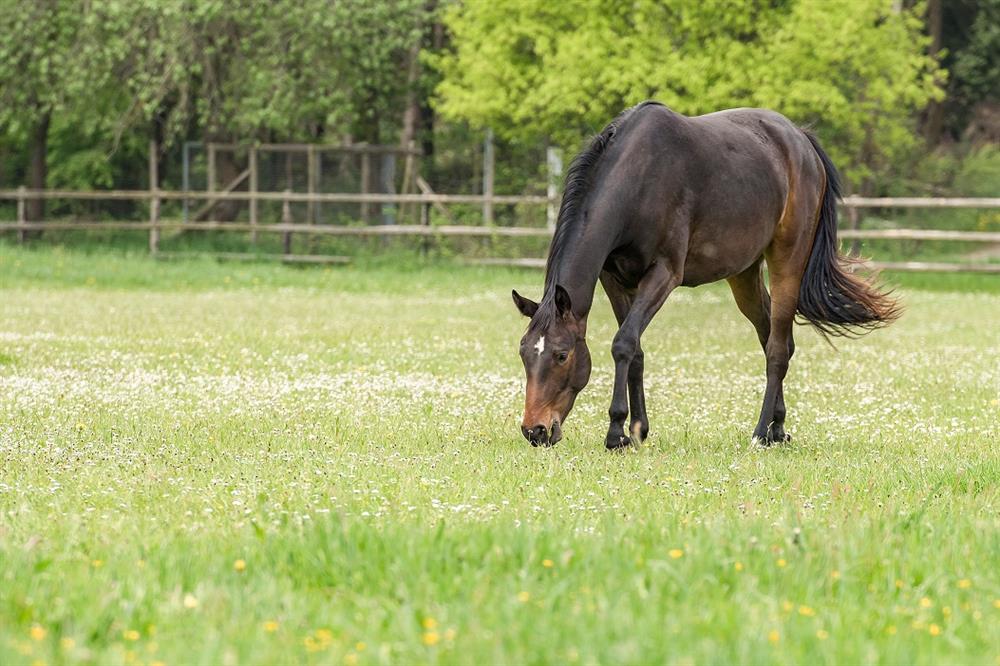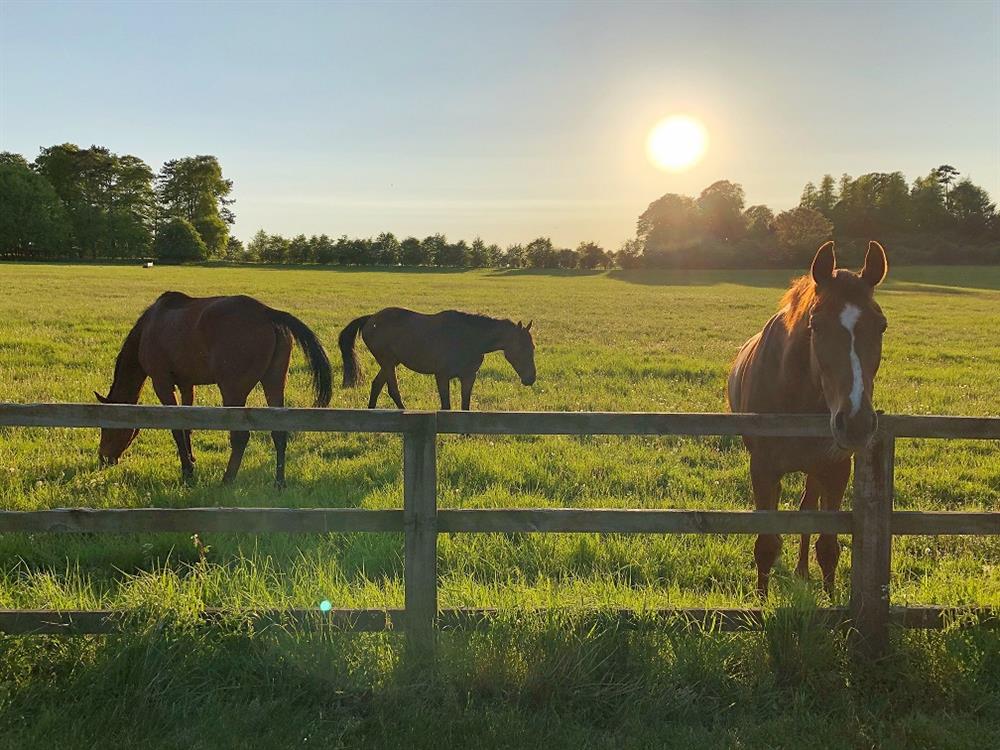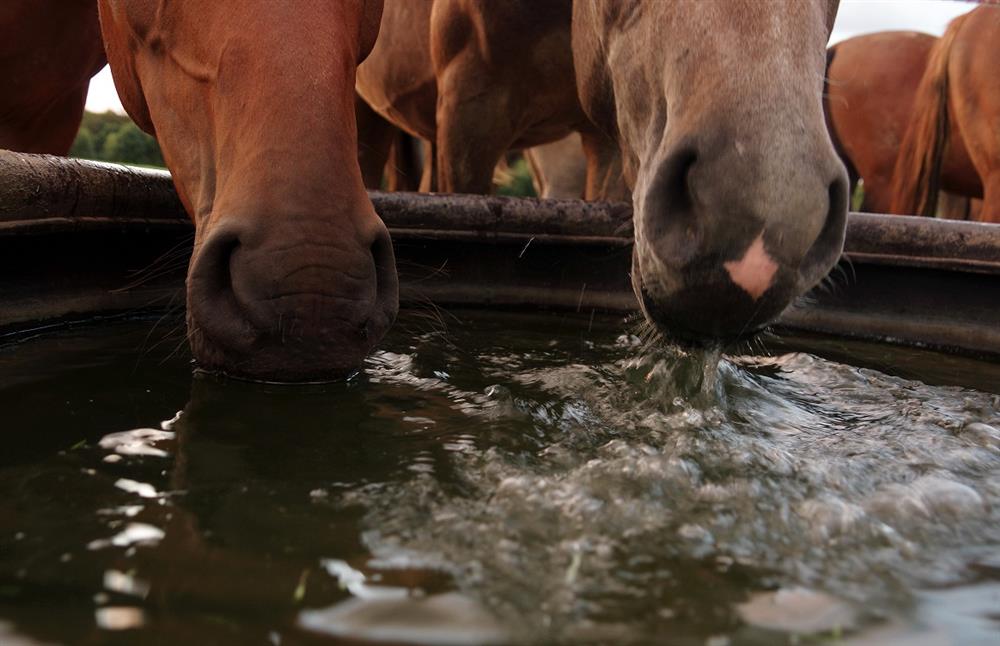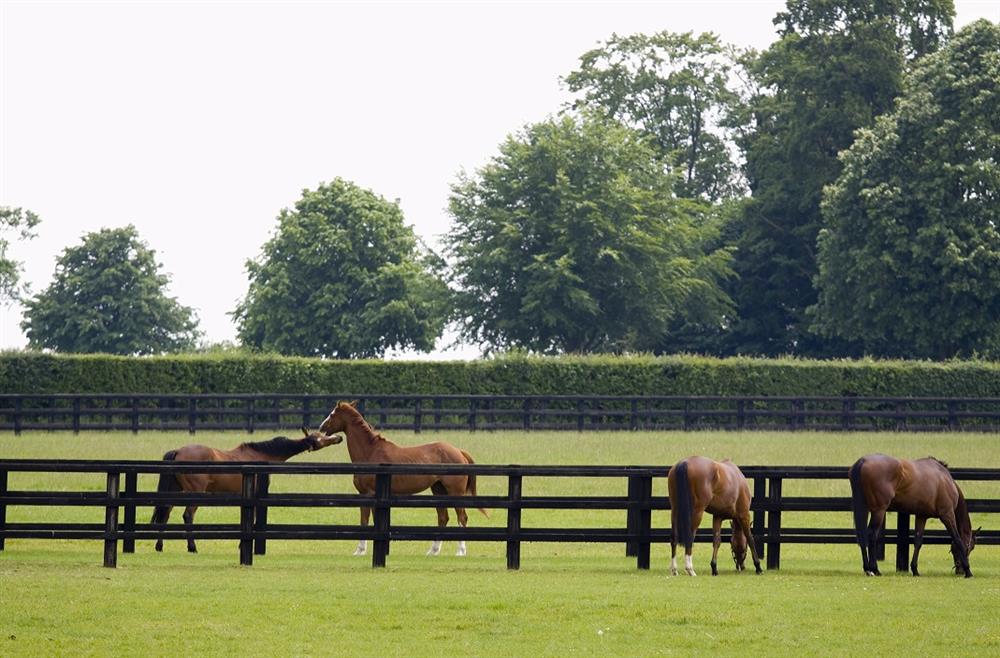With the country in lockdown, many horse owners have decided to turn their horses out 24/7, therefore, following correct paddock management techniques is vital to ensure that your grass is well looked after and growing as efficiently as possible!

Annual Paddock Maintenance...
Now is the perfect time to harrow your paddocks. Chain harrows can be hitched to tractors, quadbikes or even a car! Harrowing removes dead thatch and lifts up the vegetation allowing air to reach the soil and any new plant growth. It is important to harrow when the ground is not too hard or soft as this will damage the grass. Harrowing should be done at a walking pace, try and harrow across as well as up and down.
Rolling the paddock can also be completed after harrowing, the ground must be fairly firm to ensure that rolling does not do more damage. Rolling can encourage tillering and improve the growth rate of the grass.
Fertilizer can also be considered at this time of year. Getting a soil test beforehand is the best way of ensuring that you are adding the correct nutrients to the soil, too much of the wrong type of fertilizer can increase the risk of laminitis.
If you do not have the correct equipment, there are a number of paddock maintenance businesses who will be able to help you and advise you on correct procedures.

Day-to-Day Paddock Maintenance...
Its easy to think that if your horse is living out they can be self-sufficient, however, there are still a few routine tasks which must be completed to keep the horse happy and healthy.
Horses need access to fresh, clean water at all times. Ensure that your troughs and buckets are cleaned and topped up. Automatic drinkers will stop them from running out but even these will need to be checked and cleaned regularly.

Droppings will need to be picked up on a regular basis to help prevent worm burdens. Ideally this should be done every day, but if this is not possible then it must be done twice a week.
Check the fields and boundaries. Look for unsecure fences or anything which the horse could harm itself on; horses are notorious for getting injured! You must also look out for poisonous plants (here's some helpful guidance on these). Some plants can cause serious damage and may even be fatal, so it is really important to be able to identify them and remove them as quick as possible.

Your Horse's Nutritional Needs...
Some horses may require feeding through the summer. It is a general misconception that horses do not require any extra feed over the summer because the grass should have enough nutrients, however, due to over-grazing, this is not always the case. You should still consider feeding a vitamin or mineral supplement over the summer to satisfy their nutritional needs, our SlimAid has been specifically formulated for this! Its pelleted form means that it can be fed straight from the hand and requires no chaff to carry the supplement, making it incredibly easy to feed to all types of horses and ponies.

